Read this article to find out everything you need to know about an overland tour in Africa. You will find everything from money, safety, visas, camping, packing & food.
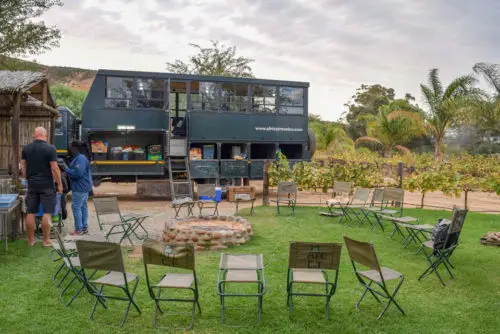
Disclosure: Untold Wanderlust contains affiliate links. If you click on these links and make a purchase, we will earn a small commission at no extra cost to you. You can find our full disclosure policy and privacy policy here.
The search for the perfect overland tour in Africa
What type of traveller are you?
Searching for an overland tour in Africa can seem a little confusing. Many tour companies offer similar tours, so it is up to you to comb through them to find the most suitable and value-for-money tour. First things first, are you looking for a luxury tour that involves staying in lavish rooms, with infinity pools overlooking the wildlife? Or are you an adventure traveller that prefers to whip up a tent and play your guitar by the campfire?
Budget and time
Once you have decided what type of overland tour your heart desires, you will need to start to think about your budget and the amount of time you have. Once you have this information pinned down, filter tours based on your budget and trip length. This will give you a good idea of what tours you’re able to do within your budget and time frame.
Choosing a route
Now things get exciting! It’s time to choose your route, and which countries you want to tick off. Would you prefer to go trekking with gorillas in Uganda, before venturing into the Serengeti in Tanzania? Or would you prefer a mixture of camping under the stars, safaris and waterfalls, on a trip from Cape Town to Victoria Falls? Route choices are endless! Make a list of the activities you want to do and choose the route that allows you to do the most.
Read how to get to South Africa from Swaziland!
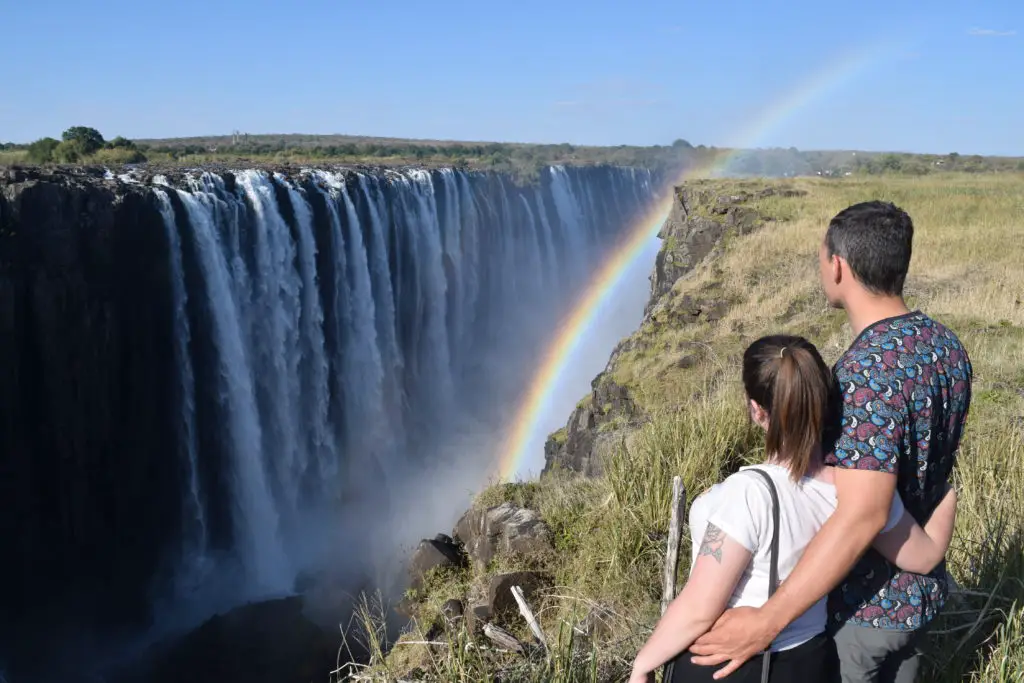
Comparing prices
When searching for a tour, you will often notice two prices; the cost of the tour and local payment. You will need to pay the total cost of the tour a few weeks before the trip begins, and the local payments on the day that your trip starts. The local payment pays for things such as food, entrance fees to the national parks, and other community projects. Read the itinerary and pricing documents carefully to check what the tour price includes and what it does not. Based on our previous research, a visit to the Okavango Delta can set you back over $200. You should factor in these extra costs when searching for a tour.
Taking care of your health whilst on the road
Whilst jabs, pills and other medical talks may not be the most exciting aspect of your African adventure, it is still an essential part of the planning process that you should not put off. Make sure to check your government advice and the World Health Organization for the latest information on what medical precautions you need to take. It’s also a good idea to visit your GP to check that all your jabs are up to date.
Malaria tablets – Along with your jabs, you may also want to bring along malaria tablets for the high-risk malaria zones. Again, we recommend that you speak with your doctor to find out the best tablets for you.
Mosquito repellent – camping in the jungle is bound to make you prone to a bite, or two, off those pesky blood-thirsty critters, known as mosquitoes. Invest in a good mosquito repellent to deter them from nipping away at you and potentially infecting you with malaria or dengue fever.
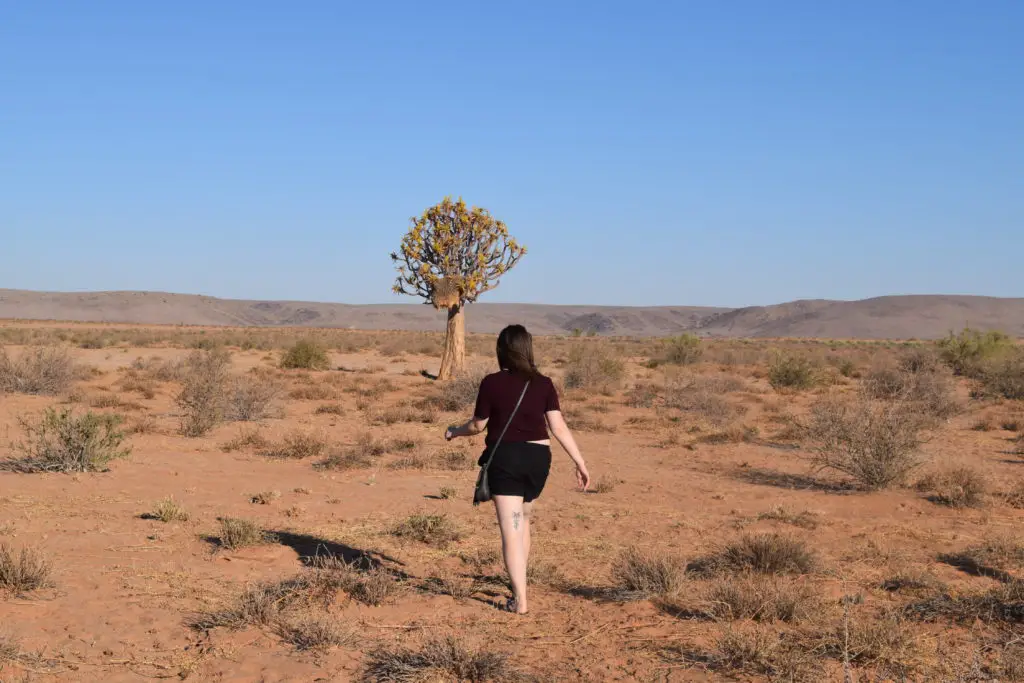
Water is your best friend – Make sure to keep hydrated whilst on the road, and sip water regularly. With early wake-up calls and scorchio days in the Namibian desert, you will need a boost of energy to keep well-nourished. You can buy big barrels of water from the supermarkets for around $1 and fill up your water bottle throughout the day.
Packing for an overland tour in Africa
First and foremost, don’t forget to pack a sleeping bag. Whilst tents, ground mats, chairs and cooking equipment are provided, sleeping bags and pillows are not. Make sure to check out these 11 best lightweight sleeping bags, to save the research hassle. Just remember, you will need a sleeping bag that is appropriate for the weather conditions at the time of your trip.
What you choose to pack on an overland tour can make or break your trip. It would be a good idea to pack only shorts and T-shirts, as when the night rolls in you will find yourself curled in a ball desperately wishing you had a source of heat. Likewise, it wouldn’t be a good idea to only pack woolly leggings and a thick coat, as, by day, you will be drippin’ with sweat with the urge to tear off all your clothes and jump in the refreshing pools.
However, this doesn’t mean you should bring along a gigantic suitcase containing the entire contents of your wardrobe. The trucks have limited space. The key to packing is to pack smart; think LAYERS! We recommend pants that can unzip into shorts, a few T-shirts, a woolly jacket, and a raincoat. You may also want to bring along a scarf, or even a hot water bottle.
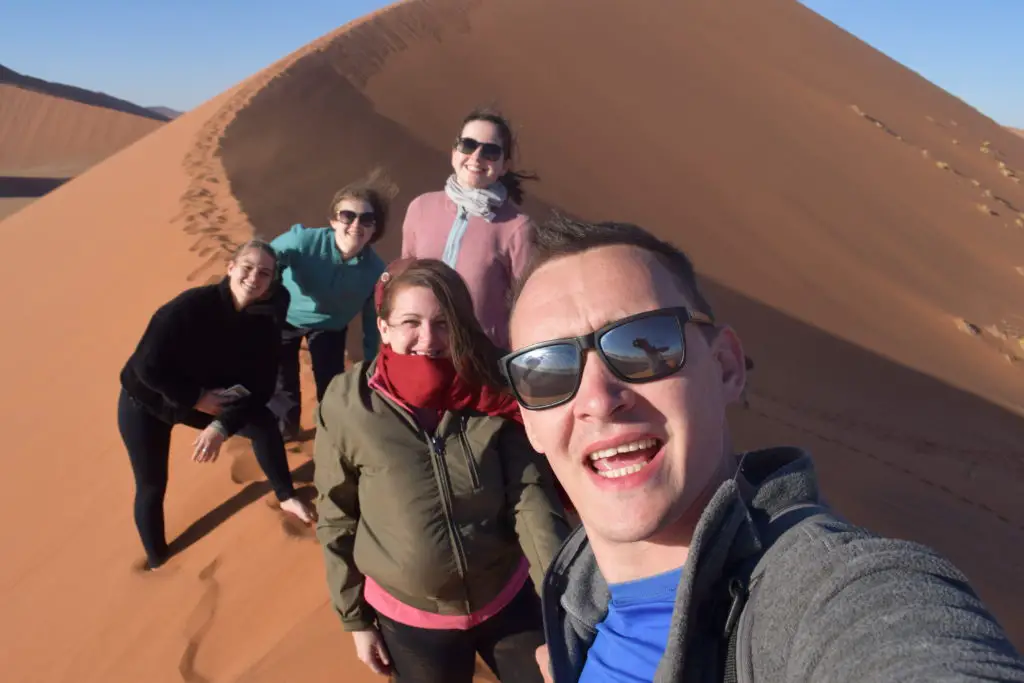
How to handle money on an overland tour in Africa
Handling large sums of money in Africa may be a concern. Although you will pay a local payment to your tour guide at the start of your trip, which will cover the cost of most of your meals, tent pitching fees, and entrances to national parks, you will need to bring extra cash for snacks, water and any of the optional activities you wish to do.
When we received our pre-pack info, for our tour from Cape Town to Victoria Falls, it recommended that we carry all our spending money with us in US Dollars. So, off we went to the ATM in Cape Town, to withdraw the South African Rand. We ended up losing out on the exchange rate again whilst changing the South African Rand into US Dollars. Thinking there would be no ATMs whilst on the road, we went for the best part of 3 weeks armed with cash, only to find out later that there are ATMs. In hindsight, it would have been so much more cost-effective and safer to carry just a small amount of US dollars and to withdraw cash in small amounts whilst on the road.
In the case that you do carry all your spending money with you from the beginning of the trip, we recommend investing in a bum bag to wear under your clothes, so your cash is always close to you but hidden away from the view of anyone else.
For more tips on how to handle your money abroad, make sure to check out our post here!
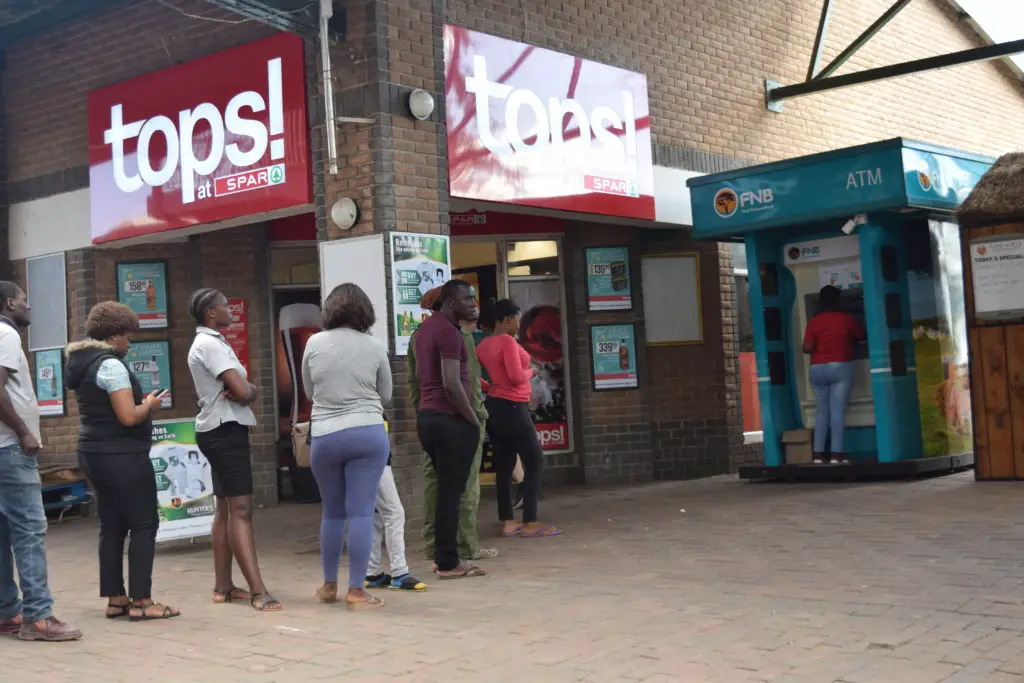
How to get visas for an overland tour in Africa
This depends entirely on what type of passport you hold. To get the most accurate and up-to-date information on visas, you should check your government website. If you’re from the UK and choose to do the Cape Town to Victoria Falls Tour, you’re lucky! South Africa, Namibia and Botswana, allow you free entry. In Zimbabwe, you can easily obtain your visa at the border. P.S. This is where those US Dollars come in handy! Unfortunately, not all countries have the opportunity for visa-free travel. For example, Chinese nationals need to obtain some visas beforehand and can incur waits of over 3 hours at borders such as Botswana.
To apply for visas beforehand, visit iVisa.
The truck, tents and equipment
What does the tour include, and what does it not? What’s the layout of the truck? Are the tents easy to put up? Is the equipment new? These are all things that will pop into your head, as the excitement of your trip begins to set in.
The trucks
Let’s start with the truck. The layout of the truck depends, not only on the company but the truck itself. Not all of them are the same! One thing’s for sure though, all of them have large windows, making it easy to peer out at the burning sun rising over African lands, before feasting your eyes on the most majestic animals. The truck we travelled on was licensed to carry around 28 people. At the front, there were 6 seats around a table and the rest of the seat formation was rows. It’s a good idea to have a seat rotation each day, so everyone gets a chance to sit up front.
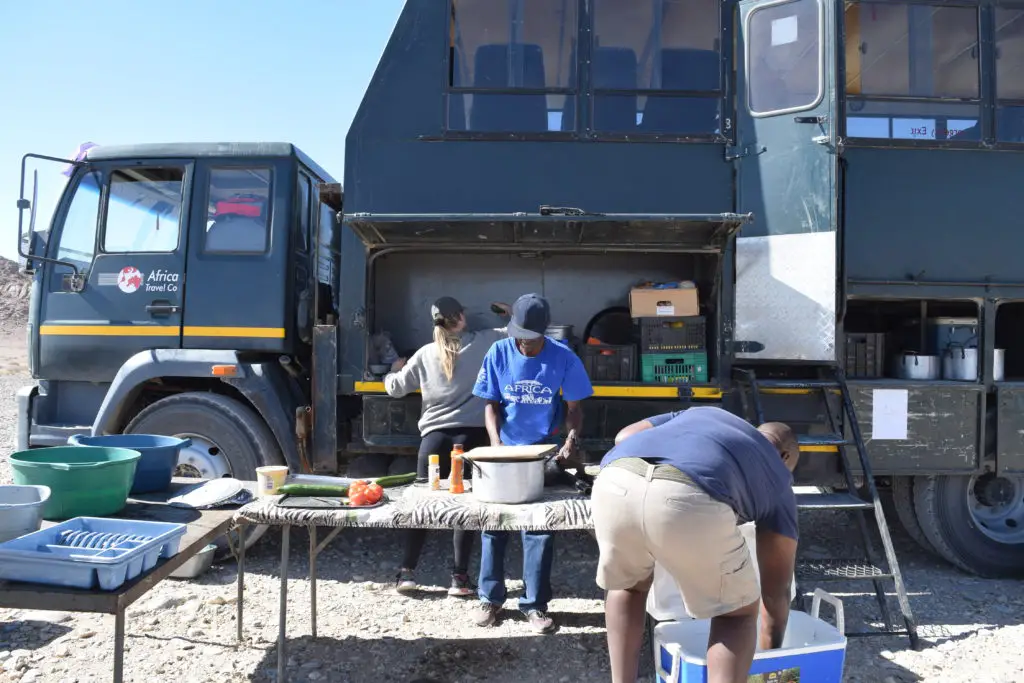
The tents
The tents are mostly 2-man tents. Once your guide shows you how to pop them up, you should have no trouble whipping them up and down. You will get the hang of it eventually. The tents on our trip were sturdy, and for the most part able to withstand the wind, except for one occasion in the Namibian desert. Let’s just say we were rudely awakened one night by the wind howling throughout the tent before half of the tent caved in at one side. If we hadn’t been in the tent, it would’ve most certainly flown over the nearby mountains.
As the tents are for two people, you may have to find yourself a roomie. Don’t worry though, females will only be paired with females, and males will only have to share with males. Alternatively, if you like to flutter away at night and be by yourself, you can opt to pay the single supplement fee. This will guarantee you your tent.
Other equipment – cooking and electrics
No need to worry about buying cooking equipment! All the cooking equipment and utensils are provided by the tour companies. Everything from the pots and pans to the knives and forks is included! The only thing we recommend that you bring along with you is a water bottle.
As for electrics, you can charge your cameras, phones, and laptops in the truck once it is stationary. Don’t forget to bring a spare battery for your camera though! You don’t want to be halfway through a game drive with a limited battery, which is why we recommend you check out these cameras for backpacking.
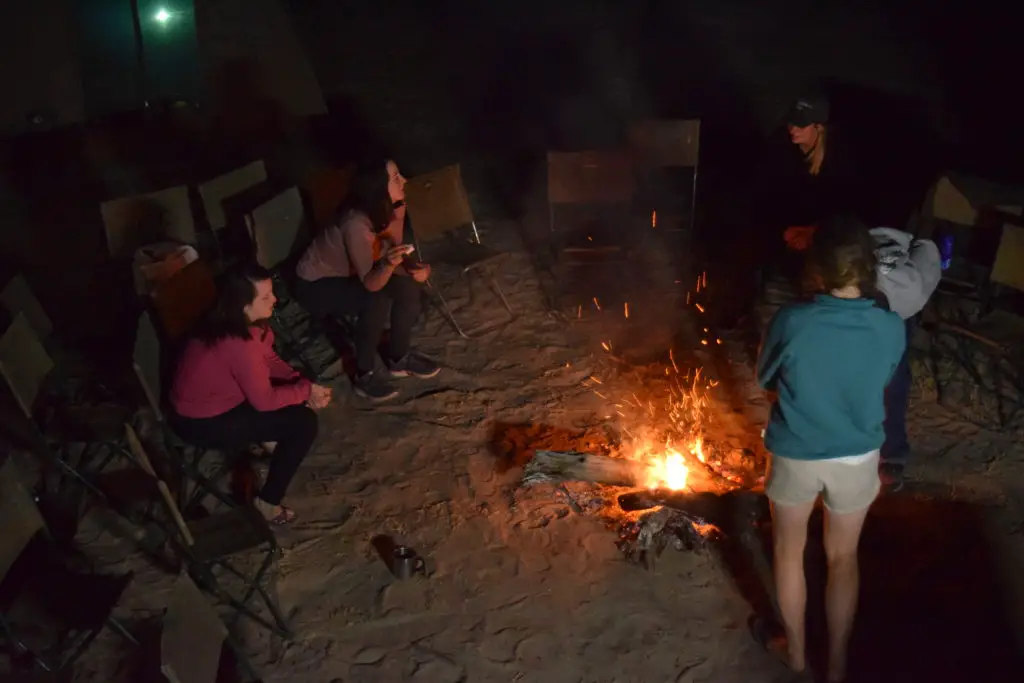
Upgrades to private rooms
Along the way, you will have the opportunity to upgrade to a room or lodge. Prices of rooms range from $50, all the way past $100 per night. So, if you plan to ditch the tent for a night, or two, in favour of a proper bed, you may want to choose wisely. Having said this, don’t expect to be able to upgrade every night! No joke – we had a few people on our tour that expected to have a hotel room every single night! You should have seen their disappointment when they realized this is NOT a luxury trip, and camping is an essential part of an overland Africa tour.
Food and drink whilst on an overland tour in Africa
Most overland tours in Africa include 3 meals per day, so you don’t need to worry too much about being fed. We dropped super lucky on our tour, as we had the fantastic Benson who cooked us up the most delicious, mouth-watering dishes each day. No word of a lie, we ate better on our tour, than we would’ve if we ate out in restaurants every night.
Every night the cook makes a meal of his choosing for the guests. The tour company will not cater to fussy eaters, but they will cater to specific food requirements, such as if you’re vegan or have any allergies. You just need to let them know beforehand. There were only a few occasions where we had to fend for ourselves, which was fine as it was usually in the cities. On these occasions, the group stayed together anyway, and all ate at the same restaurant. Before the trip begins, you will receive a detailed itinerary that will inform you exactly on which days you will need to buy food.
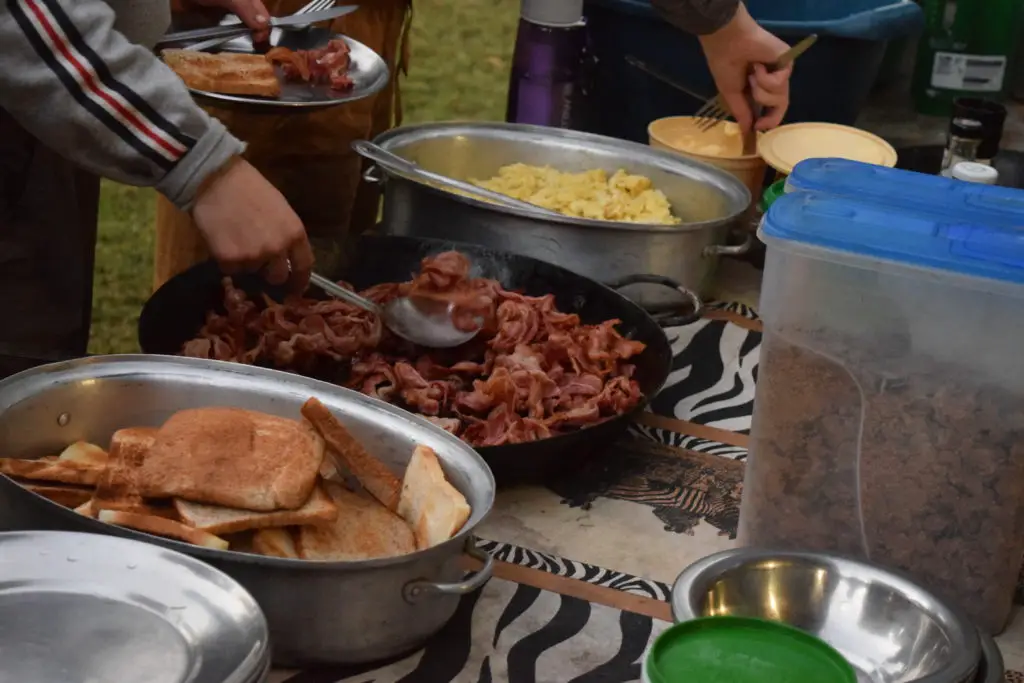
The tour price includes drinks, such as tea and coffee. Water is not included! You have the option to buy 5-litre water bottles from the supermarkets for a dollar, or two. You will make a stop at a supermarket or small store almost every day. So, make sure to stock up on water and snacks regularly.
Optional activities & extra money
Overland Africa tours do not always include all the activities and excursions. For example, Sky diving in Swakopmund was not included in our tour, and neither was one of the game drives in Etosha National Park. However, our particular tour did include one of the highlights of Zambia; the entrance to Victoria Falls. It’s important to note that you are not obliged to take part in any of the optional activities. It simply means that you will have to hang out at camp on that day.
The cost of optional activities varies. It’s a good idea to check through your itinerary carefully and choose which activities you want to do. This way you can get an idea of how much extra money you will need to bring along. Most optional activities don’t need to be booked before your trip starts, which is great for indecisive globe trotters. Each night your guide will host a meeting to let everyone know what will be happening the following day. He/she will let you know when you need to book the optional excursions and how to pay for them.
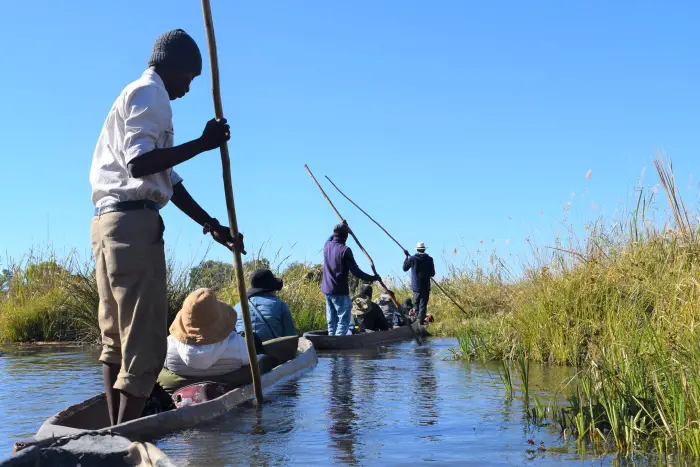
After weeks and weeks of searching for overland tours in Africa, we found that most tour companies offered the overnight Okavango Delta excursion in Botswana as an optional activity. The cost of this optional activity varied between $150 – $200. The Okavango Delta is a MUST if your trip takes you through Botswana. Make sure to look out for this excursion when doing your research to check if it is included in the price or an added extra.
The day-to-day schedule of an overland tour in Africa
Prepare for super early mornings! When I say super early mornings, I mean 5 am get-ups. The days usually start before the crack of dawn. Before the sun even begins to rise, you will need to be up, ready, and the tent taken down. You will then have breakfast before hitting the road as the sun begins to rise. Drive days can be long, but the scenery and spotting animals will keep you entertained.
Around noon, your tour group will take a break to eat lunch, before continuing the drive to the next campsite or the day’s activity. Dinner is usually served around 6 or 7 pm. Afterwards, you and your new tour buddies may want to grab a drink at the campsite bar. However, don’t expect to go all out with partying as the bars usually close between 11 pm and 12 am.
Most days are jam-packed with driving and activities, but there are a few days where you can take it easy, sleep in a little longer, spend the day by the pool, or go wildlife spotting.
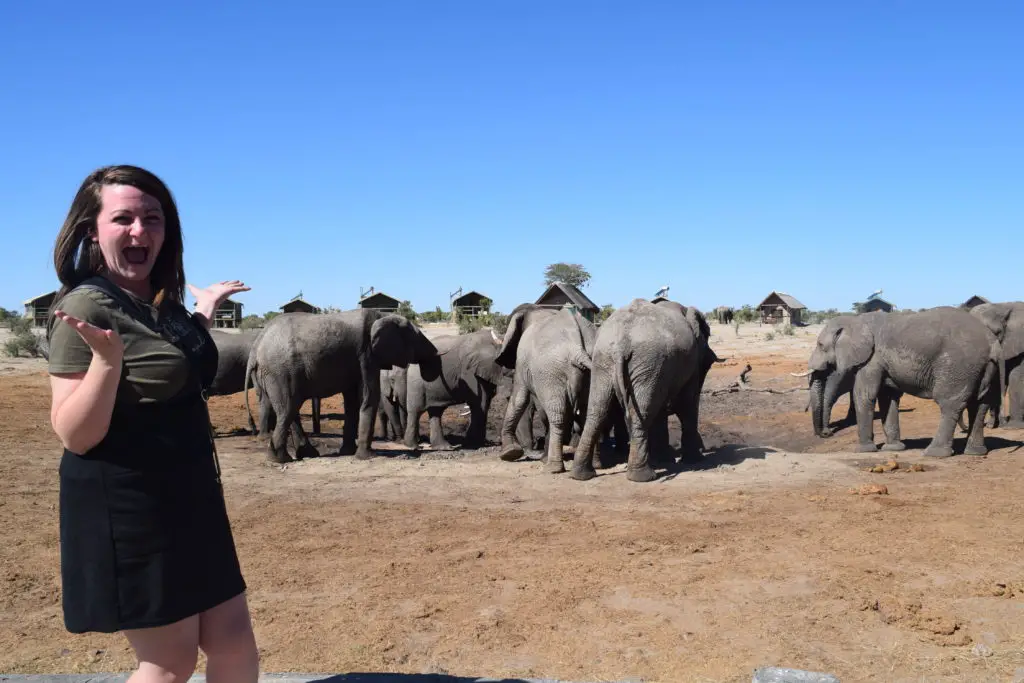
Phew! That’s a lot to know about an overland tour in Africa. Now you know everything there is to know, get searching for your dream African trip. But, most importantly enjoy every minute of the research process as well as the tour itself. Before you know it, your African adventure will come and go, and you will be wishing you could do it all again.
Travel insurance
No matter where you’re going in the world, it is a good idea to make sure you’re covered. Our personal choice is SafetyWing as you can opt for automatic monthly payments, just like a subscription. But, more importantly for us, it is available for purchase in 180 countries and can be purchased when already travelling. There is no cap on the duration of travel. We spent days and weeks searching for insurance, but most insurers would not allow us to take out a policy as we were already abroad.
Like this post? Pin it!
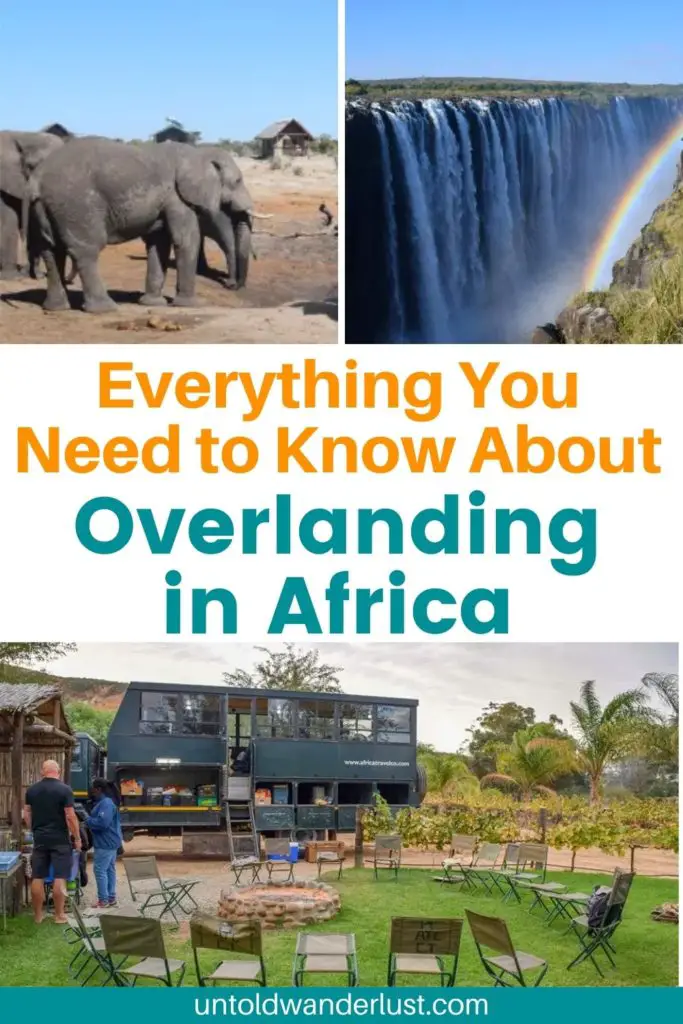
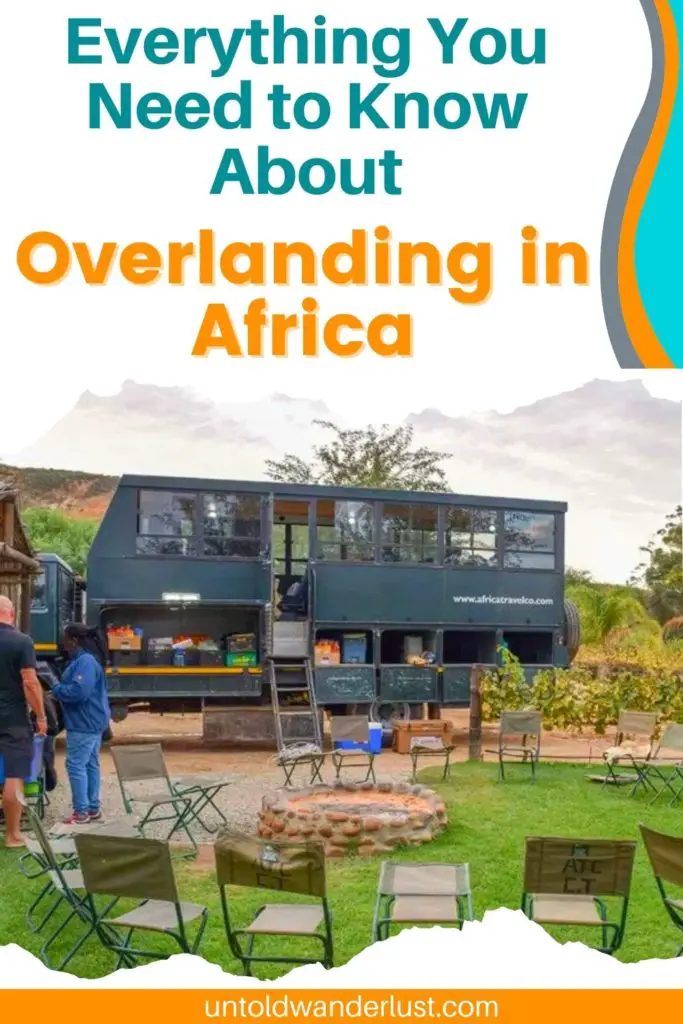

Africa gives you the knowledge that man is a small creature, amongst other creatures, in a large landscape
We agree, Africa is incredible 🙂